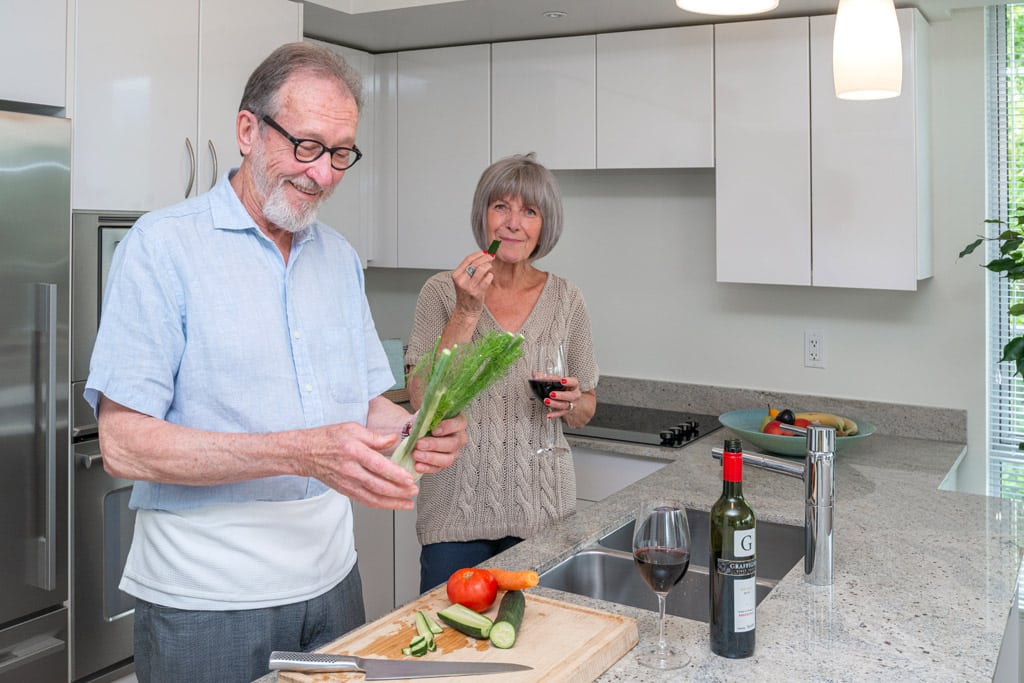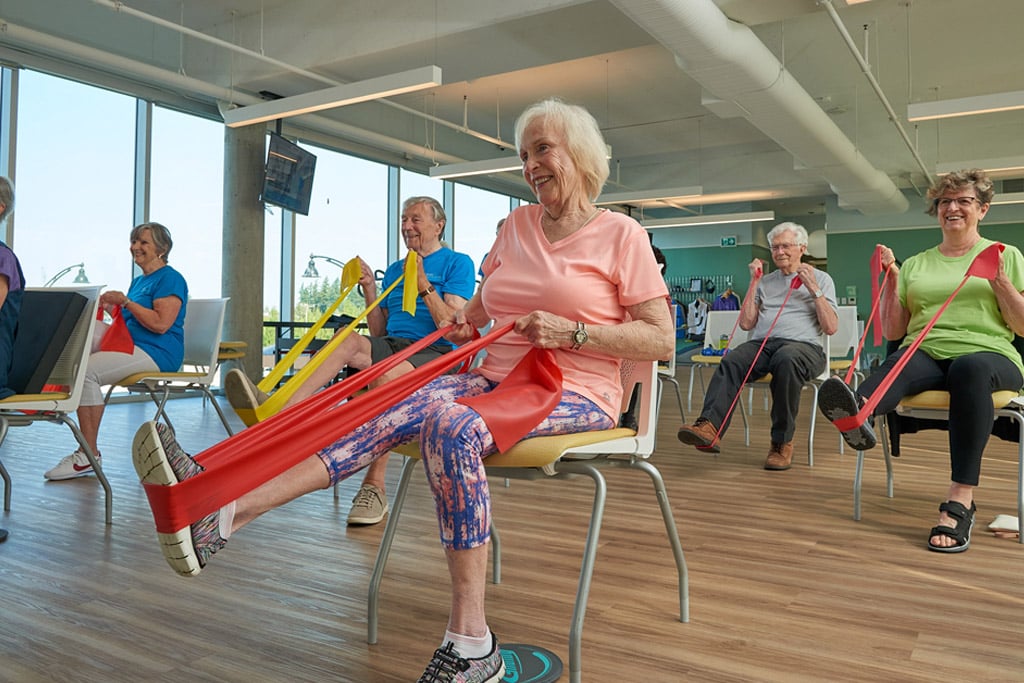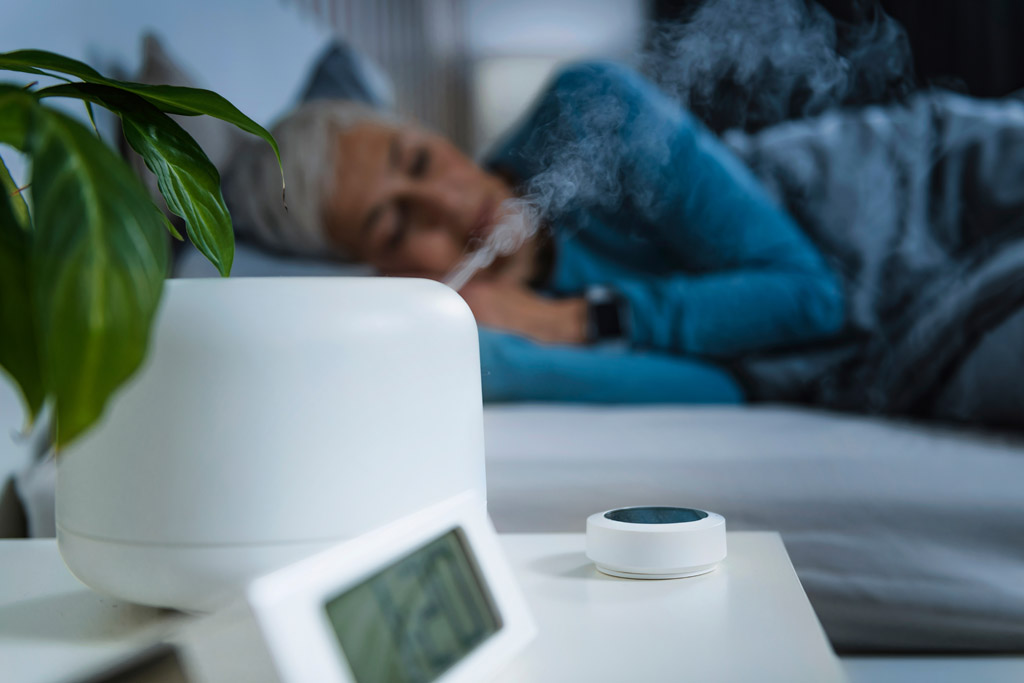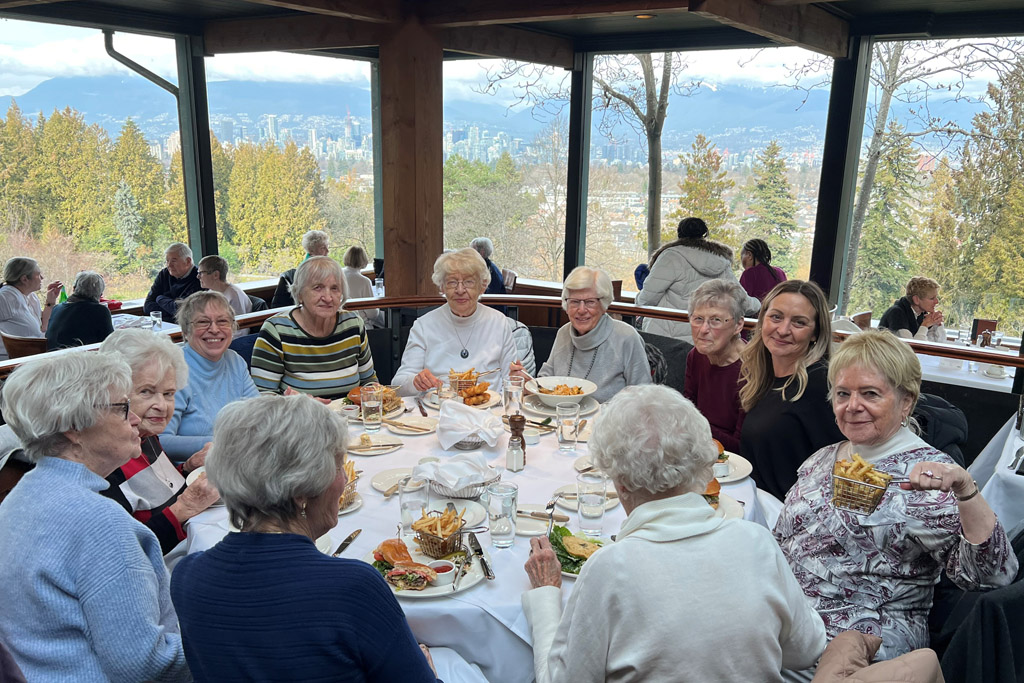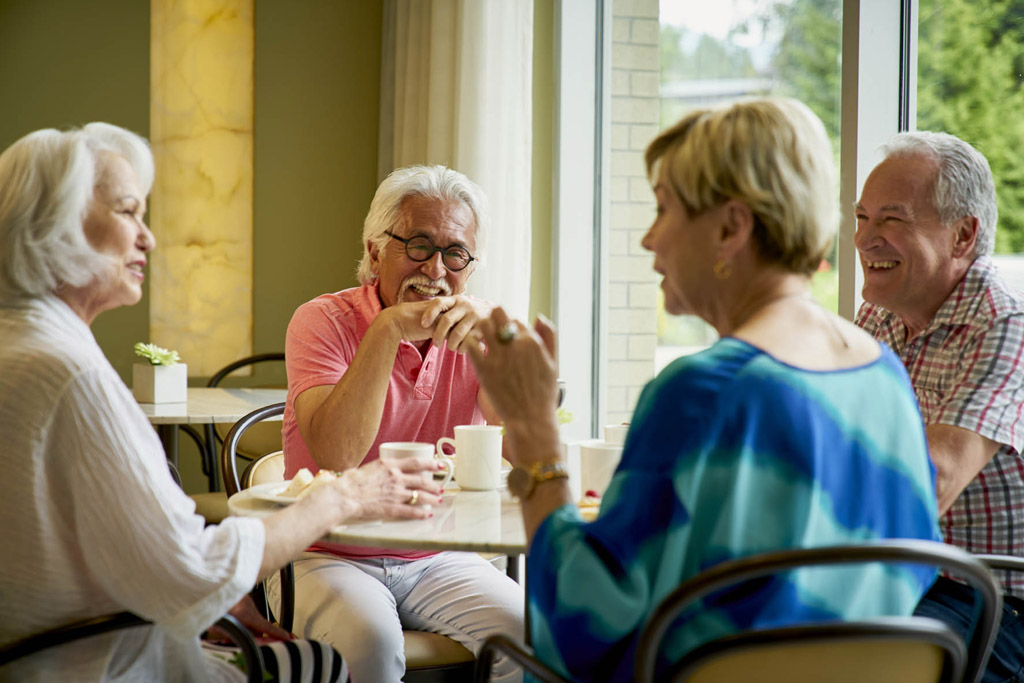Healthy Aging Tips for Seniors
in Senior Health & WellnessWritten by PARC Retirement Living
Aging is a natural process, and while it comes with challenges, it can also usher in a vibrant phase of late life, that’s rich with discovery and experience – if we’re healthy enough to enjoy it.
A few simple lifestyle changes can make the difference between a life that’s simply long, and a long life marked by happiness and well-being. Here are six habits that the healthiest, happiest seniors we know have in common:
1. They eat their fruit, veggies and protein
One of the most important factors in healthy aging is what we eat. A nutritious, balanced diet can help seniors maintain a healthy weight, stave off chronic diseases, boost immunity, fortify bones and muscles, strengthen the cardiovascular system and generate the energy they need to stay active.
You’ll want to prioritize plenty of vegetables, whole grains, lean protein, and healthy fats. Antioxidant-rich, colourful fruits and vegetables aid in cellular repair, while grains are loaded with fibre and essential vitamins and minerals. Lean proteins such as chicken, fish, and beans help support muscle mass and strength without the added fat and cholesterol. Processed foods and sugar can certainly put a smile on your face from time to time – but their nutritional value is low. Everything in moderation!
2. They move their bodies and stay active
Movement and exercise are essential to aging well, and maintaining a rich quality of life as a senior. Regular exercise has been proven to actively combat the deteriorating effects of aging, improving strength, balance and endurance. Seniors who regularly exercise are also less likely to suffer with mobility challenges, and they tend to bounce back more quickly from injury than those who lead a sedentary lifestyle.
There is no one-size-fits-all exercise for seniors – your best activity will depend on a range of factors, from ability to personal preference. However, walking is a great, low-impact form of exercise that improves cardiovascular health, balance, and coordination. Strength training with weights or resistance bands is also beneficial for healthy aging, helping to build and maintain muscle mass and bone density. Senior-customized aerobic and fitness classes, such as those offered as part of the PARC Fit program, are also a great way to build a stronger body and cardiovascular system.
3. They drink plenty of water
It’s almost comical to see how many young people these days tote around oversize water bottles wherever they go. But in this case: the kids have the right idea. Our bodies are mostly made of water – so at any age, staying hydrated is essential for everything from regulating body temperature to flushing out waste, aiding in digestion, lubricating joints and boosting energy.
But as we age, water becomes even more vital. Dehydration can have a negative impact on cognitive function; worrisome for seniors, who are already at greater risk of cognitive decline than the general population. Seniors are also more susceptible to heat-related illnesses, such as heat exhaustion and heat stroke, and staying hydrated can help prevent these conditions. Some medications commonly taken by older adults also have diuretic effects, causing the body to lose water and become dehydrated.
According to the National Council on Aging, seniors can calculate how much water to consume by taking one-third of their body weight in fluid ounces. For instance, if you weigh 150 pounds, aim to drink 50 ounces of water each day. However, increase that amount if you are in a hot environment or you have been exercising.
4. They get their rest
Sleep is another critical aspect of longevity and well-being for seniors. As we age, it’s normal for sleep patterns to change – and insomnia can sometimes rear its head in later life. But getting adequate rest helps the body to repair and regenerate cells, which is crucial for longevity, as well as cognition. Seniors who get ample rest are more likely to retain memory, problem-solving and decision-making functions, and avoid conditions such as dementia. Sleep also helps with balance and coordination, which in turn reduces the risk of falls and accidents.
So, if you want to age well – prioritize getting seven to nine hours of sleep every night. Create a regular rest routine by going to bed at the same time consistently. Create a calming space and carve out time to relax before bed – whether you read, take a warm bath or do something else to unwind. And limit your evening use of electronic gadgets, as blue light from LED screens can interrupt your body’s circadian rhythm.
5. They keep their minds sharp through brain-stimulating activities
Keeping the brain active and engaged is vital for healthy aging. Seniors can help maintain their cognitive function by engaging in brain-stimulating activities like reading, puzzles and games. Learning a new skill or taking a class can also be helpful, as it challenges the brain and promotes mental flexibility. Even simple activities like taking a different route to the grocery store, or trying a new hobby, can help keep the brain active and engaged. And by taking care of their brain health, seniors have a much better shot at maintaining their memory, motor functions, balance, emotional well-being and more.
6. They get out and socialize
People are social creatures by nature, and our levels of social interaction can affect how we age. Socializing is especially important for seniors, who are at greater risk of isolation and loneliness than other age groups. Socializing and companionship have been proven to enhance brain health as we age, which can improve longevity and quality of life.
There are so many ways to get out there and have fun with other people: participate in group activities, join a club, volunteer for a local organization, take a class. Better yet, join an independent living community that organizes these types of activities for you! Connecting with others through social media and video calls can also be helpful, especially for seniors who may have mobility issues.
But the most important aspect is getting out there and enjoying life – with a positive, joyful outlook. A recent Harvard study showed that seniors with more positive attitudes about growing old tend to live longer and healthier lives than those with negative thoughts about aging. People who had the highest satisfaction with aging had a 43 per cent lower risk of dying, from any cause, over a four-year period compared with those who were the least satisfied.
What does it all mean? A positive outlook is really the first and most important step on the path to healthy aging. And the rest is really no secret.
Learn more about how we take care of our residents’ bodies and minds, and keep them connected to other people for a more fulfilling, healthier lives.


